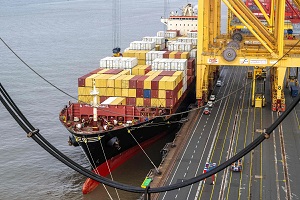Germany raises growth projection to 0.2% for 2025, 1.3% for 2026

AFP
BERLIN — The German government on Wednesday raised its growth forecasts, saying it expected Europe's largest economy to narrowly avoid stagnation in 2025 before enjoying more pronounced growth in 2026.
The last government projection in April predicted zero growth for 2025 but the economy ministry said in a statement that this had been upgraded to 0.2 per cent, with the estimate for 2026 raised from 1.0 to 1.3 per cent.
Economy Minister Katherina Reiche said that the projections showed the need to act quickly to spur further growth.
"We need the courage to take decisive reforms," she told a press conference presenting the projections, pointing to the need to lower energy prices and lower taxes.
Germany's manufacturing sector has been struggling under the weight of high energy prices, fierce foreign competition and the effects of new US tariffs on EU products.
Earlier on Wednesday official data showed a sharp decline in industrial production in August, particularly in the automotive sector.
German industrial production fell more sharply than expected in August, data showed Wednesday, reviving fears of a recession in Europe's largest economy as it reels from US tariffs.
Meanwhile, data from the statistical office Destatis showed that from July to August, industrial production fell by 4.3 percent, much further than the one percent decline anticipated by analysts surveyed by Factset.
Following a contraction in GDP of 0.3 percent in the second quarter, the latest figures show "that the risk of yet another quarter of contraction and thus an outright technical recession is very real", said economist CarstenBrzeski of ING bank.
Later on Wednesday, Economy Minister KatherinaReiche will present the government's growth forecasts for the current year and 2026.
After two years of recession, Germany is struggling to kickstart its economy while contending with high energy prices, slowing demand and fierce foreign competition.
The decline in production in August is mainly due to a sharp drop in the embattled automotive industry, where output was down 18.5 percent.
Mechanical engineering production also fell by 6.2 percent after a 9.2 percent increase in July.
The pharmaceutical industry saw a drop in output of 10.3 percent.
Over the summer German industry had to deal with the introduction of new US tariffs, set at a level of 15 percent for most products from the European Union.
An uptick in purchases before the tariffs came into effect had given a boost to German exports.
However, according to Brezski "it increasingly looks as if this upswing was almost entirely the result of the frontloading of US products in anticipation of looming tariffs".
While new domestic orders significantly increased in August, weak foreign demand "is holding back business development," the economy ministry said in a statement on Wednesday's figures.
The data paint a "mixed picture" and reflect "the high level of geopolitical uncertainties," the statement added.
Latest News
-
 Syrian defense minister announces "comprehensive ceasefire" with Kurds
Syrian defense minister announces "comprehensive ceasefire" with Kurds
-
 King holds phone call with US president
King holds phone call with US president
-
 Crown Prince meets winners of Al Hussein Award for voluntary service
Crown Prince meets winners of Al Hussein Award for voluntary service
-
 Clashes erupt in Aleppo between Syrian army and SDF, dozens displaced
Clashes erupt in Aleppo between Syrian army and SDF, dozens displaced
-
 First round of Gaza talks concludes in ‘positive atmosphere': Egyptian media reports
First round of Gaza talks concludes in ‘positive atmosphere': Egyptian media reports